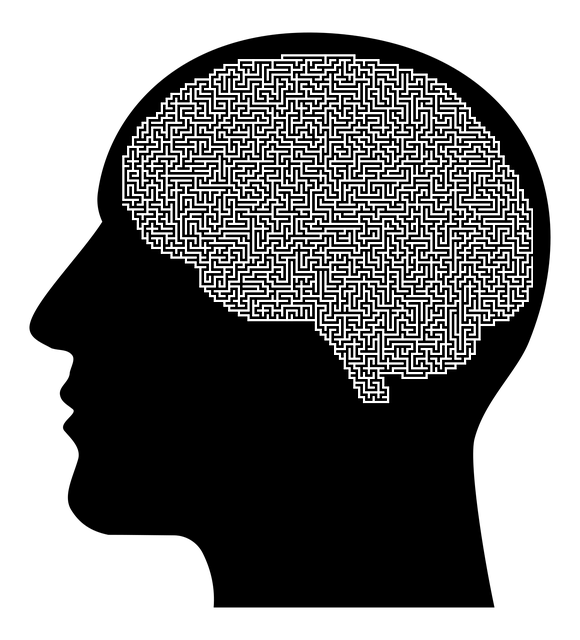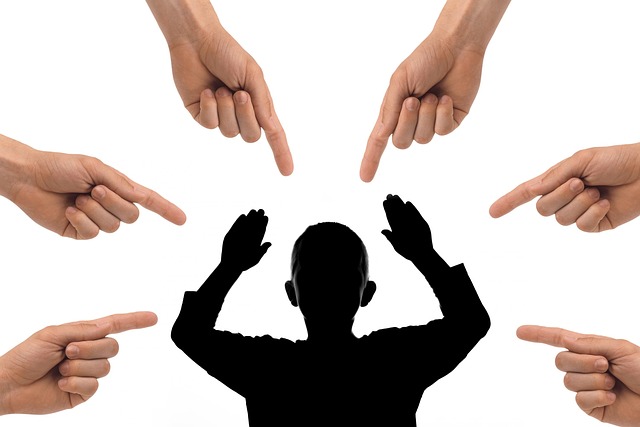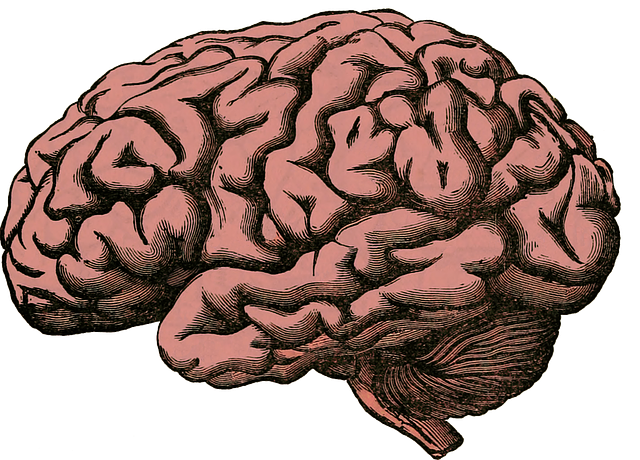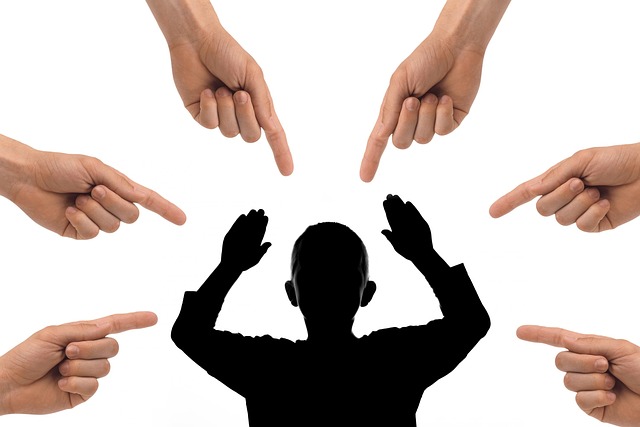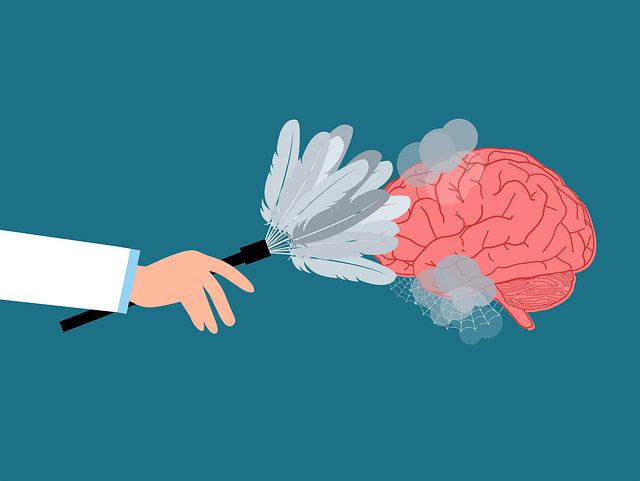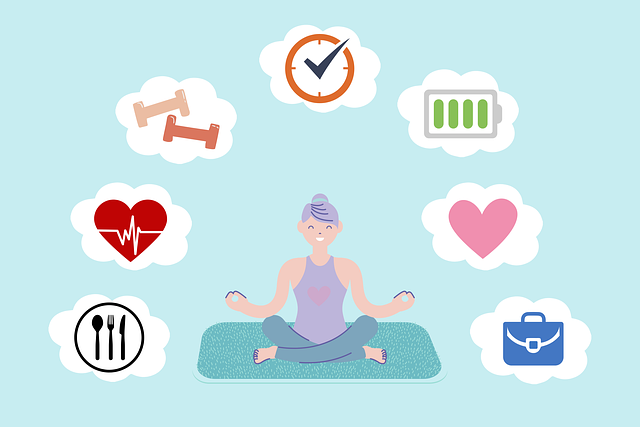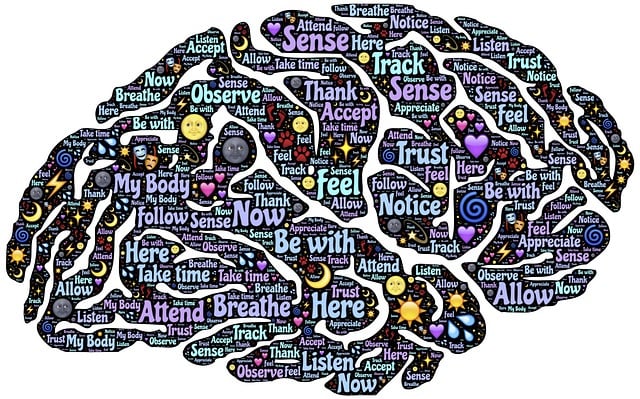Mindfulness meditation tailored for young children is an innovative approach to managing stress, anxiety, and early signs of psychosis. This method diverges from traditional silence by engaging kids through interactive storytelling, games, and visualizations. Regular mindfulness practice, integrated into daily routines, benefits emotional well-being, communication skills, and mental health awareness in children. For healthcare providers treating young patients, it prevents burnout and enhances resilience during therapy sessions. Mindfulness meditation shows promise as a transformative tool for psychosis management in children, reducing symptoms, improving functioning, and cultivating coping strategies. Culturally sensitive adaptations and community outreach expand access to these benefits, emphasizing the importance of early intervention and self-care practices.
“Discover the transformative power of mindfulness meditation for young children. This comprehensive guide explores its role as an innovative therapy for kids, addressing psychosis and its impact on their lives. We delve into the benefits of mindfulness, offering practical steps to integrate meditation practices into daily routines. From understanding its foundations to overcoming challenges, this article equips parents and caregivers with tools to foster mental well-being in children. Uncover how mindfulness can be a game-changer in managing psychosis and enhancing overall therapeutic outcomes.”
- Understanding Mindfulness Meditation for Young Children
- Identifying Psychosis in Childhood and its Impact
- Benefits of Mindfulness as a Therapeutic Approach
- Practical Steps to Introduce Meditation to Kids
- Overcoming Challenges and Measuring Progress
Understanding Mindfulness Meditation for Young Children

Mindfulness meditation, often perceived as a practice for adults seeking calm and focus, has significant benefits when adapted for young children. It’s a powerful tool that can help young minds manage stress, anxiety, and even symptoms of psychosis in some cases. Unlike traditional meditation techniques, mindfulness meditation for kids focuses on the present moment through engaging activities rather than silent stillness. This approach caters to their shorter attention spans and often incorporates storytelling, games, or guided visualizations tailored to their age group.
By integrating mindfulness into daily routines, parents and educators can foster Emotional Well-being Promotion Techniques that enhance a child’s ability to regulate emotions and maintain focus. Communication Strategies, when combined with these practices, empower children to express their feelings effectively and develop healthier coping mechanisms. Moreover, regular mindfulness exercises can serve as Burnout Prevention Strategies for Healthcare Providers who work with young patients, ensuring they approach therapy sessions with greater resilience and emotional balance.
Identifying Psychosis in Childhood and its Impact

Psychosis, often associated with severe mental health disorders like schizophrenia, can have its roots in childhood. While it’s a complex topic, early signs and symptoms may include delusions, hallucinations, or disorganized thinking. These experiences can significantly impact a child’s ability to navigate their emotional landscape, interact socially, and develop a sense of self.
Identifying psychosis in young individuals is crucial as timely intervention through therapy for young children psychosis can be transformative. Mental wellness coaching programs designed specifically for this age group focus on developing inner strength, fostering mental health awareness, and teaching coping mechanisms to manage symptoms. These strategies aim to enhance their overall well-being and ensure they have the tools to thrive in a world that may seem increasingly confusing and overwhelming.
Benefits of Mindfulness as a Therapeutic Approach

Mindfulness meditation has emerged as a powerful therapeutic approach, offering significant benefits for individuals across various age groups and mental health landscapes. When applied to therapy for young children experiencing psychosis, mindfulness can serve as a game-changer. By fostering self-awareness and emotional regulation, it enables these young minds to navigate their internal experiences with greater ease. Research suggests that mindfulness practices can reduce symptoms of psychosis, improve overall functioning, and enhance coping strategies in children.
Moreover, the benefits extend beyond childhood. Incorporating mindfulness into therapy can also be valuable for mental health professionals, as it promotes a holistic understanding of client experiences. This is particularly relevant when considering the risk assessment for mental health professionals, emphasizing the importance of self-care and emotional resilience. Additionally, cultural sensitivity in mental healthcare practice gains prominence, as mindfulness techniques can be adapted to respect diverse backgrounds, ensuring inclusive therapeutic environments. Even with these advantages, implementing a community outreach program focused on mindfulness education could further enhance access to these therapeutic benefits for underserved populations.
Practical Steps to Introduce Meditation to Kids

Introducing meditation to children can be a powerful tool for their emotional well-being and mental health development. Starting early with mindfulness practices is beneficial as it helps kids cultivate self-awareness, focus, and coping skills that will serve them throughout their lives. To make this process engaging, consider these practical steps.
First, break down the concept into simple terms tailored to their age group. Explain meditation as a way to calm their mind and body, similar to taking a deep breath or imagining a peaceful scene. Use relatable examples they can connect with, like comparing their thoughts to clouds floating in the sky. Next, incorporate play and creativity; guided visualizations or mindful games can make it fun. Start with short sessions of 5-10 minutes and gradually increase duration as they become more comfortable. Also, ensure a consistent practice by incorporating meditation into their daily routines, such as before meals or during bedtime, using mind over matter principles to foster discipline. Regularly assess the risk factors for mental health issues in children and use these practices as a preventive measure alongside any necessary therapy for young children psychosis.
Overcoming Challenges and Measuring Progress

Overcoming Challenges is a significant aspect of mindfulness meditation practice, especially for those navigating conditions like psychosis in young children. Mindfulness isn’t about eliminating thoughts or emotions; rather, it’s a process of acknowledging and accepting them non-judgmentally. This can be particularly challenging when dealing with intense or disturbing thoughts, which are common symptoms of psychosis. However, by fostering mental wellness through regular practice, children (and adults) can develop the skills to observe their internal experiences without reacting impulsively or getting caught up in them.
Measuring progress in mindfulness meditation isn’t always straightforward, especially when addressing complex issues like psychosis. Unlike depression prevention, where symptoms may be more easily quantifiable, mental wellness is a multifaceted concept. Progress might manifest as an increased ability to regulate emotions, enhanced focus, or improved relationships—all interconnected aspects of overall well-being. Compassion cultivation practices can play a vital role here by encouraging individuals to treat themselves and others with kindness and understanding, fostering a supportive environment for growth and healing.
Mindfulness meditation offers a promising therapeutic approach for young children, particularly those dealing with psychosis. By understanding its benefits and implementing practical steps, parents and caregivers can guide kids towards improved mental well-being. Overcoming challenges and regularly measuring progress is essential to ensure the effectiveness of mindfulness as a complementary therapy for childhood psychosis.

